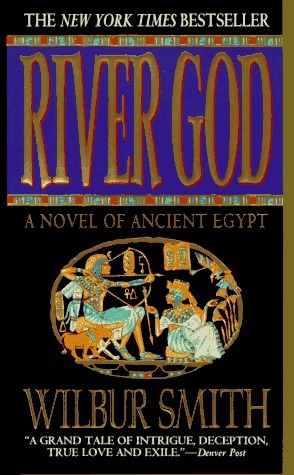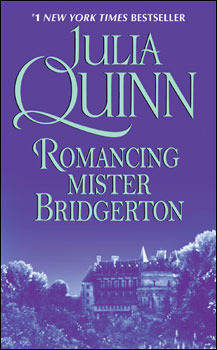
Rising Strong: The Reckoning. The Rumble. The Revolution.
by Brené Brown
30 popular highlights from this book
Key Insights & Memorable Quotes
Below are the most popular and impactful highlights and quotes from Rising Strong: The Reckoning. The Rumble. The Revolution.:
Compassionate people ask for what they need. They say no when they need to, and when they say yes, they mean it. They're compassionate because their boundaries keep them out of resentment.
Vulnerability is not winning or losing; it’s having the courage to show up and be seen when we have no control over the outcome. Vulnerability is not weakness; it’s our greatest measure of courage.
Just because someone isn’t willing or able to love us, it doesn’t mean that we are unlovable.
There are too many people today who instead of feeling hurt are acting out their hurt; instead of acknowledging pain, they’re inflicting pain on others. Rather than risking feeling disappointed, they’re choosing to live disappointed. Emotional stoicism is not badassery. Blustery posturing is not badassery. Swagger is not badassery. Perfection is about the furthest thing in the world from badassery.
Integrity is choosing courage over comfort; choosing what is right over what is fun, fast, or easy; and choosing to practice our values rather than simply professing them.
The opposite of recognizing that we’re feeling something is denying our emotions. The opposite of being curious is disengaging. When we deny our stories and disengage from tough emotions, they don’t go away; instead, they own us, they define us. Our job is not to deny the story, but to defy the ending—to rise strong, recognize our story, and rumble with the truth until we get to a place where we think, Yes. This is what happened. This is my truth. And I will choose how this story ends.
I want to be in the arena. I want to be brave with my life. And when we make the choice to dare greatly, we sign up to get our asses kicked. We can choose courage or we can choose comfort, but we can’t have both. Not at the same time. Vulnerability is not winning or losing; it’s having the courage to show up and be seen when we have no control over the outcome. Vulnerability is not weakness; it’s our greatest measure of courage.
Steve said, “I don’t know. I really don’t. All I know is that my life is better when I assume that people are doing their best. It keeps me out of judgment and lets me focus on what is, and not what should or could be.” His answer felt like truth to me. Not an easy truth, but truth.
We don't have to do all of it alone. We were never meant to.
...sometimes when we are beating ourselves up, we need to stop and say to that harassing voice inside, "Man, I'm doing the very best I can right now."
C. S. Lewis captured this so beautifully in one of my favorite quotes of all time: To love at all is to be vulnerable. Love anything and your heart will certainly be wrung and possibly be broken. If you want to make sure of keeping it intact, you must give it to no one, not even an animal. Wrap it carefully round with hobbies and little luxuries; avoid all entanglements. Lock it up safe in the casket or coffin of your selfishness. But in that casket, safe, dark, motionless, airless, it will change. It will not be broken; it will become unbreakable, impenetrable, irredeemable. To love is to be vulnerable.
People who wade into discomfort and vulnerability and tell the truth about their stories are the real badasses.
How can we expect people to put value on our work when we don't value ourselves enough to set and hold uncomfortable boundaries?
You may not control all the events that happen to you, but you can decide not to be reduced by them. —Maya Angelou
When I see people stand fully in their truth, or when I see someone fall down, get back up, and say, “Damn. That really hurt, but this is important to me and I’m going in again”—my gut reaction is, “What a badass.
MANIFESTO OF THE BRAVE AND BROKENHEARTED There is no greater threat to the critics and cynics and fearmongers Than those of us who are willing to fall Because we have learned how to rise With skinned knees and bruised hearts; We choose owning our stories of struggle, Over hiding, over hustling, over pretending. When we deny our stories, they define us. When we run from struggle, we are never free. So we turn toward truth and look it in the eye. We will not be characters in our stories. Not villains, not victims, not even heroes. We are the authors of our lives. We write our own daring endings. We craft love from heartbreak, Compassion from shame, Grace from disappointment, Courage from failure. Showing up is our power. Story is our way home. Truth is our song. We are the brave and brokenhearted. We are rising strong.
TEN GUIDEPOSTS FOR WHOLEHEARTED LIVING 1. Cultivating authenticity: letting go of what people think 2. Cultivating self-compassion: letting go of perfectionism 3. Cultivating a resilient spirit: letting go of numbing and powerlessness 4. Cultivating gratitude and joy: letting go of scarcity and fear of the dark 5. Cultivating intuition and trusting faith: letting go of the need for certainty 6. Cultivating creativity: letting go of comparison 7. Cultivating play and rest: letting go of exhaustion as a status symbol and productivity as self-worth 8. Cultivating calm and stillness: letting go of anxiety as a lifestyle 9. Cultivating meaningful work: letting go of self-doubt and “supposed to” 10. Cultivating laughter, song, and dance: letting go of being cool and “always in control
A lot of cheap seats in the arena are filled with people who never venture onto the floor. They just hurl mean-spirited criticisms and put-downs from a safe distance. The problem is, when we stop caring what people think and stop feeling hurt by cruelty, we lose our ability to connect. But when we’re defined by what people think, we lose the courage to be vulnerable. Therefore, we need to be selective about the feedback we let into our lives. For me, if you’re not in the arena getting your ass kicked, I’m not interested in your feedback.
Of all the things trauma takes away from us, the worst is our willingness, or even our ability, to be vulnerable. There's a reclaiming that has to happen.
Owning our story and loving ourselves through that process is the bravest thing we’ll ever do.
It’s always helpful to remember that when perfectionism is driving, shame is riding shotgun.
Boundaries—You respect my boundaries, and when you’re not clear about what’s okay and not okay, you ask. You’re willing to say no. Reliability—You do what you say you’ll do. At work, this means staying aware of your competencies and limitations so you don’t overpromise and are able to deliver on commitments and balance competing priorities. Accountability—You own your mistakes, apologize, and make amends. Vault—You don’t share information or experiences that are not yours to share. I need to know that my confidences are kept, and that you’re not sharing with me any information about other people that should be confidential. Integrity—You choose courage over comfort. You choose what is right over what is fun, fast, or easy. And you choose to practice your values rather than simply professing them. Nonjudgment—I can ask for what I need, and you can ask for what you need. We can talk about how we feel without judgment. Generosity—You extend the most generous interpretation possible to the intentions, words, and actions of others. Self-trust is often a casualty
Stay in your own lane. Comparison kills creativity and joy.
As Rumi says, “We’re all just walking each other home.
Choosing to be curious is choosing to be vulnerable because it requires us to surrender to uncertainty.
I define wholehearted living as engaging in our lives from a place of worthiness. It means cultivating the courage, compassion, and connection to wake up in the morning and think, No matter what gets done and how much is left undone, I am enough. It’s going to bed at night thinking, Yes, I am imperfect and vulnerable and sometimes afraid, but that doesn’t change the truth that I am brave and worthy of love and belonging.
Just because we didn’t measure up to some standard of achievement doesn’t mean that we don’t possess gifts and talents that only we can bring to the world. Just because someone failed to see the value in what we can create or achieve doesn’t change its worth or ours.
I don’t trust a theologian who dismisses the beauty of science or a scientist who doesn’t believe in the power of mystery.
We can choose courage or we can choose comfort, but we can’t have both. Not at the same time.
Show me a woman who can hold space for a man in real fear and vulnerability, and I’ll show you a woman who’s learned to embrace her own vulnerability and who doesn’t derive her power or status from that man. Show me a man who can sit with a woman in real fear and vulnerability and just hear her struggle without trying to fix it or give advice, and I’ll show you a man who’s comfortable with his own vulnerability and doesn’t derive his power from being Oz, the all-knowing and all-powerful.


